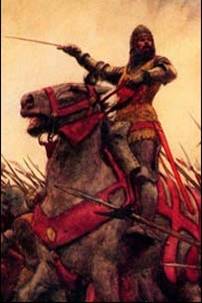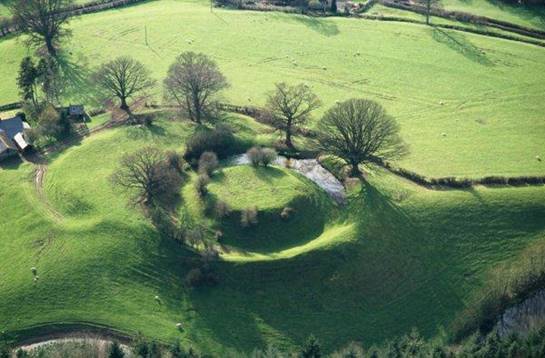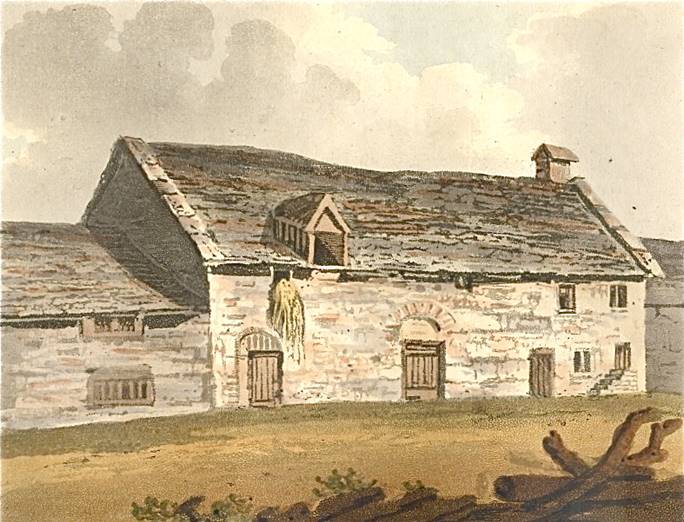|
Owain Glyndŵr lived over 600 years ago and yet today remains one of the most heroic figures in Welsh history. Owain was a natural leader and an astute statesman who united and led the Welsh against English rule.
It is not certain when or where Owain Glyndwr was born - the possible dates are 1349, 1354 or 1359 and the two most likely places are the family home at Sycharth or in Trefgarn, Pembrokeshire where one story says that his mother was visiting at the time of his birth. |
Owain Glyndwr
|
Owain’s family had estates at Sycharth, Iscoed in the Teifi Valley and Glyndyfrdwy. Iscoed was inherited by his mother, Elen, whilst Glyndyfrdwy, in the Dee Valley was described as a "fine lodge in the park". |
|
Sycharth |
||
|
1400 – Prince of Wales In 1399, Henry of Lancaster usurped the throne from his cousin, King Richard II. This was resented by many in Wales and by some leading nobles in England too. In 1400, Reginald de Grey, Marcher Lord of the Ruthin area, laid claim to some of Owain’s land. The King sided with Lord Grey. Had Richard II still been king when Owain Glyndwr appealed to Parliament against the theft of his land by Reginald de Grey, he might well have won the case. The unfairness of this judgement was compounded when Henry IV proclaimed his son Prince of Wales. The response of Glyndwr’s supporters’ was to proclaim him Prince of Wales, at Corwen, on September 16 1400. It is more likely, in fact, that Glyndwr had himself declared prince. |
||
|
Owain attacked and destroyed the towns of Ruthin, Denbigh, Rhuddlan, Flint, Hawarden, Holt and Oswestry. Only when they reached Welshpool were they met by a significant opposition force led by Sheriff Hugh Burnell and were duly scattered. There followed a series of battles between Glyndwr and Henry IV at locations across Wales – Conway, Mynydd Hyddgen, Strata Florida, Bryn Glas, Usk, Caerleon, Newport, Carmarthen amongst others. By the end of 1403 Owain Glyndwr controlled most of Wales and then in May 1404 he captured Harlech and Aberystwyth. Owain set up his parliament at Machynlleth and later at Harlech. However, in 1405 Owain’s armies were defeated at two battles – Grosmont and Pwll Melyn. At first the English thought that Owain had been killed at Pwll Melyn, but later found out that it was Owain’s brother Tudur who had died. As a result of these two defeats, and the rumours of Owain’s death, Owain’s power began to wane, but he still hoped for help from France. It was during a special council of his followers, held in Pennal during Lent 1406, that Owain drafted the famous ‘Pennal Letter’ to Charles VI, King of France, setting out his dreams and objectives for Wales and asking for help. |
Owain's Parliament House in Machynlleth
|
|


